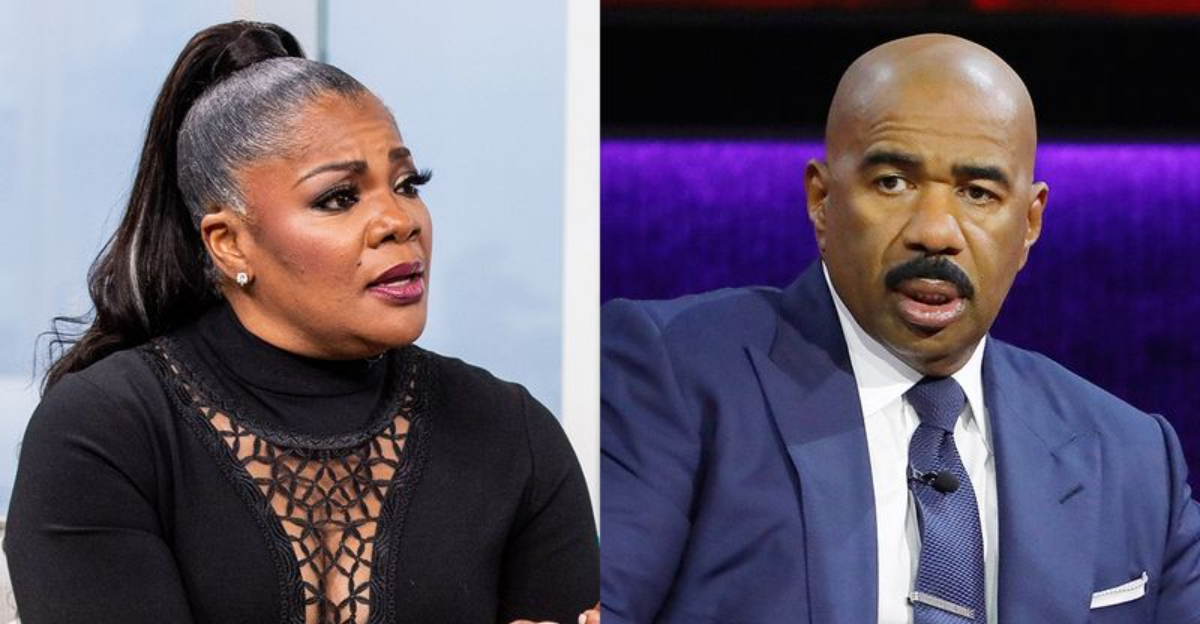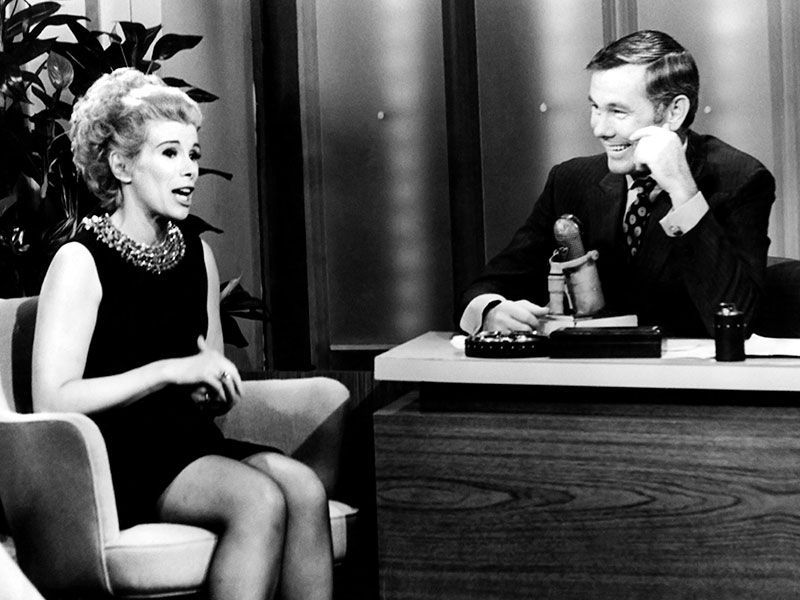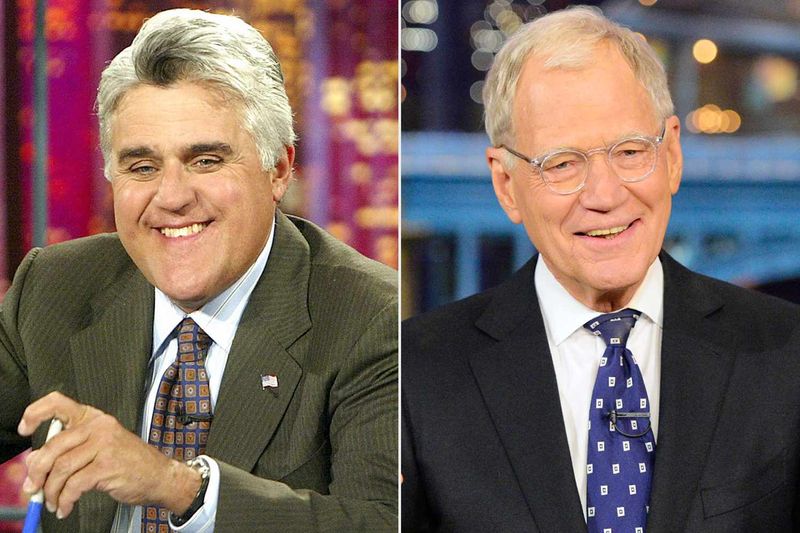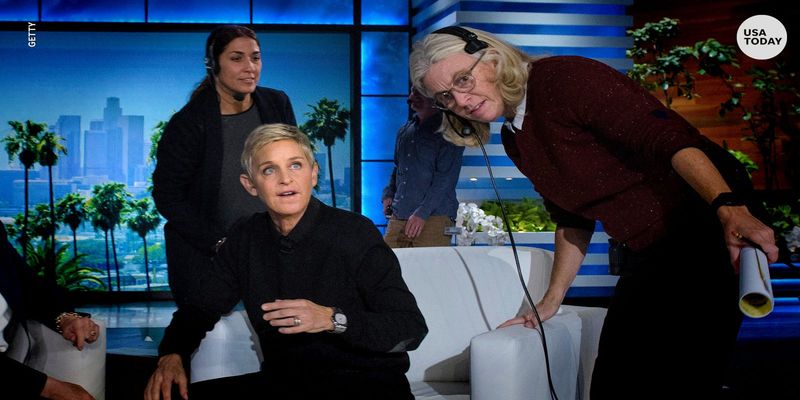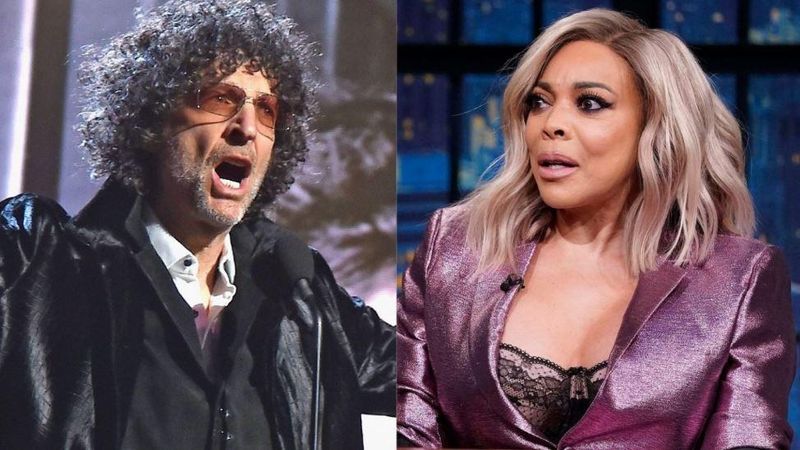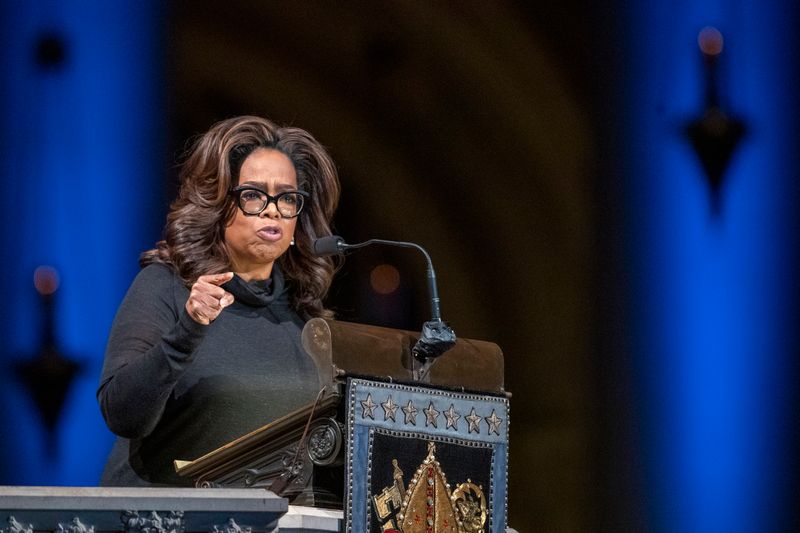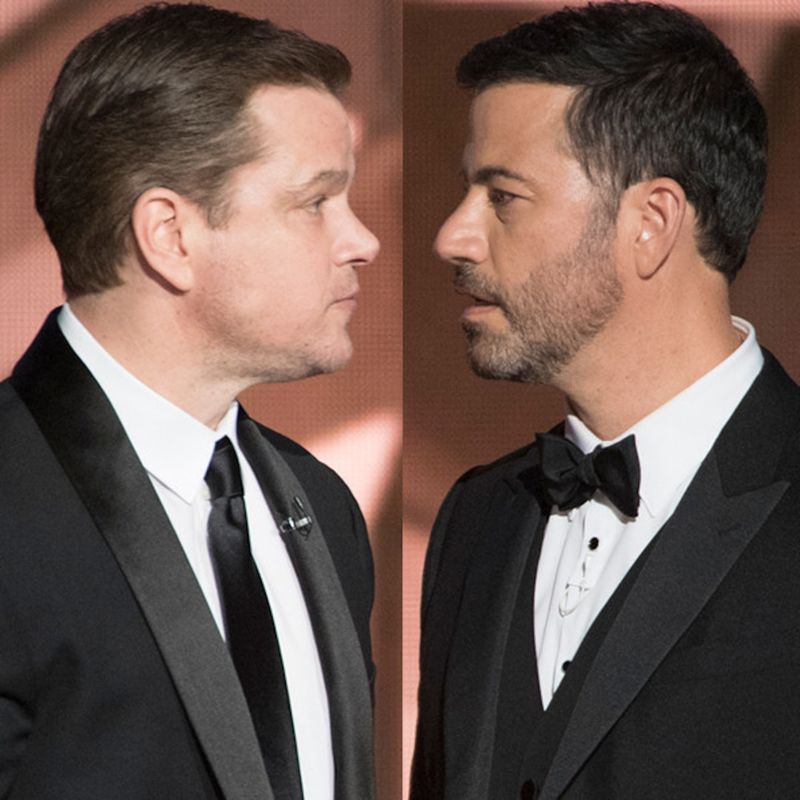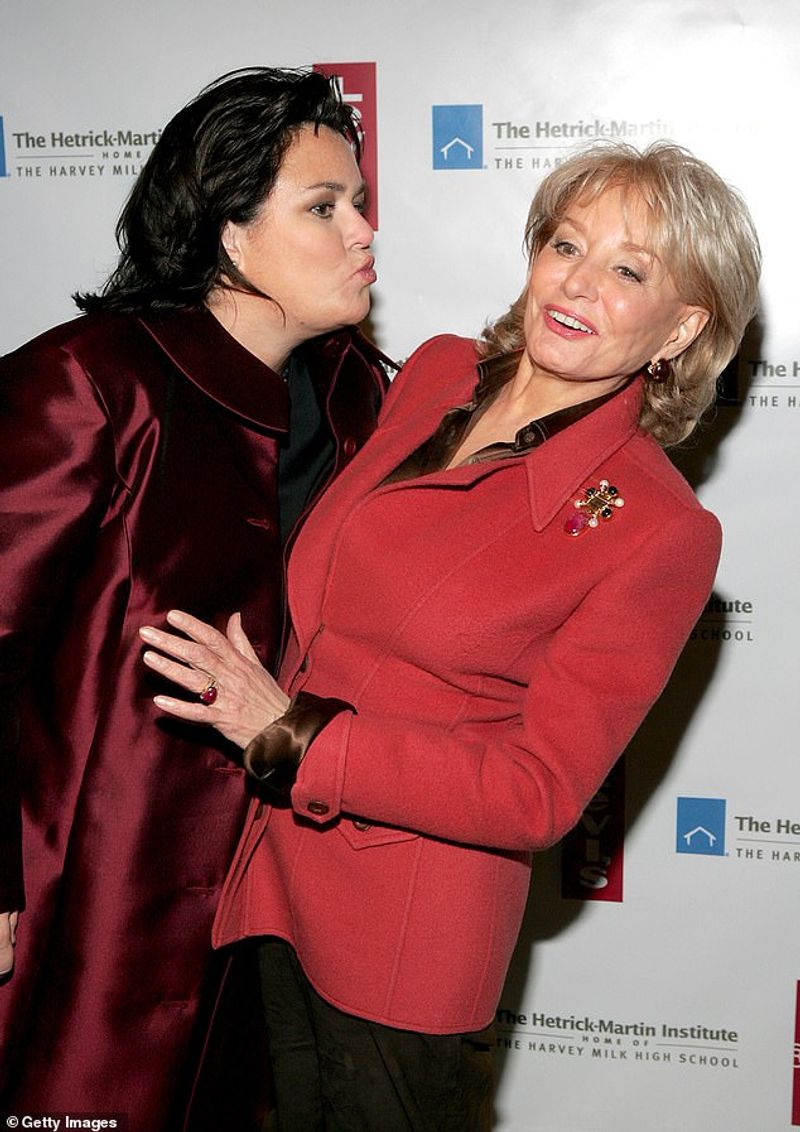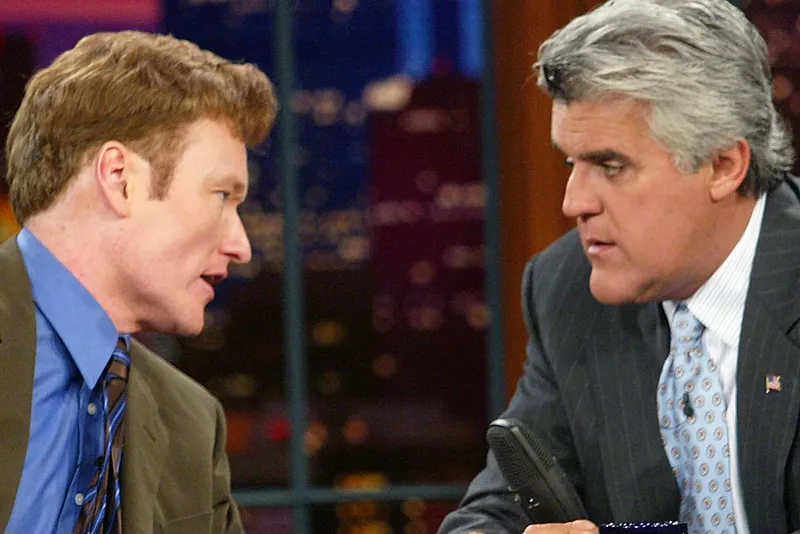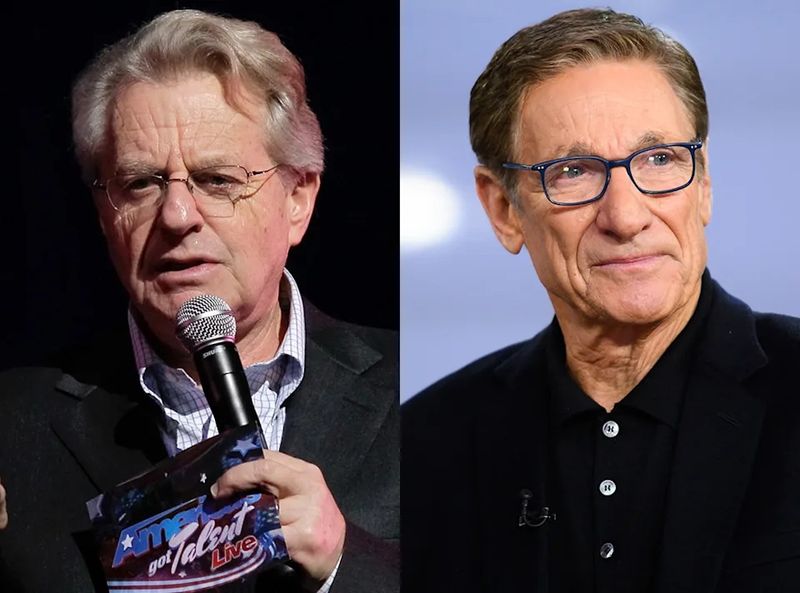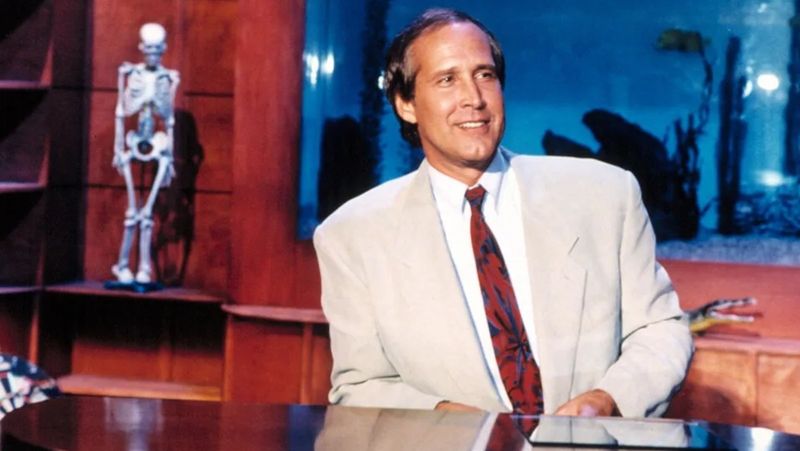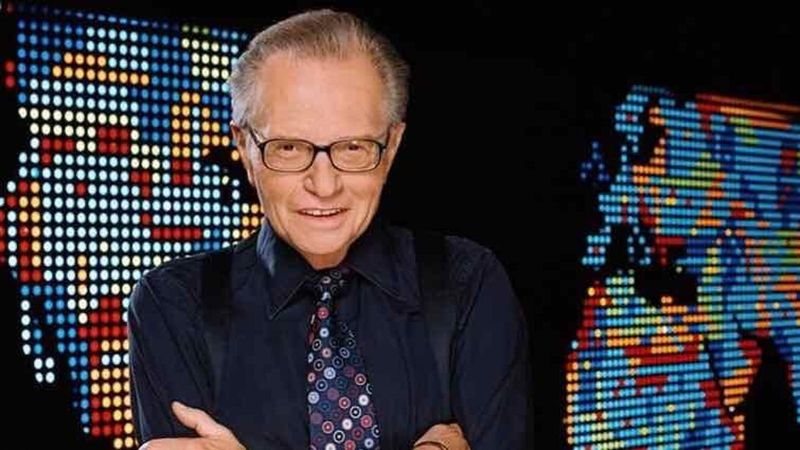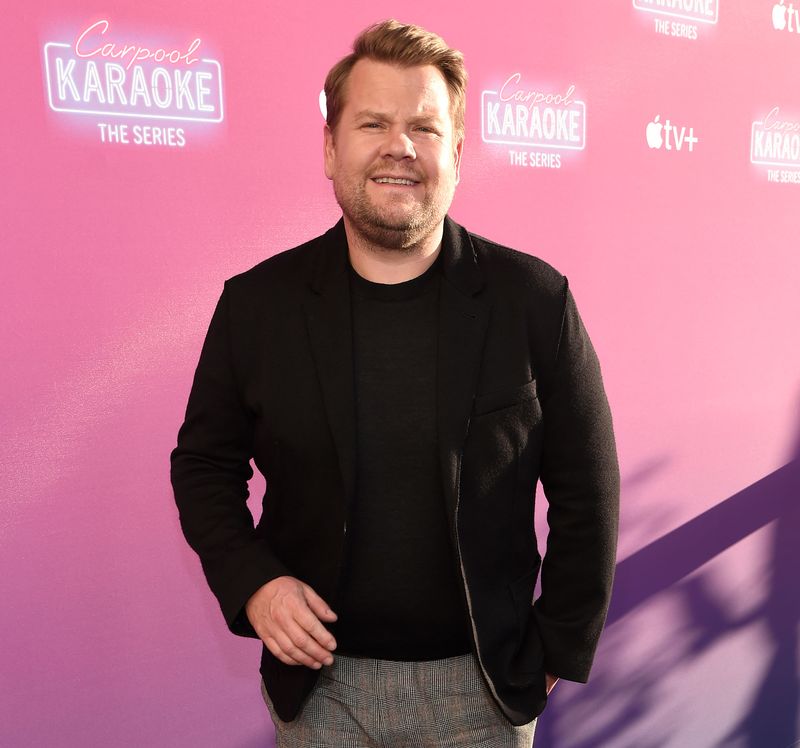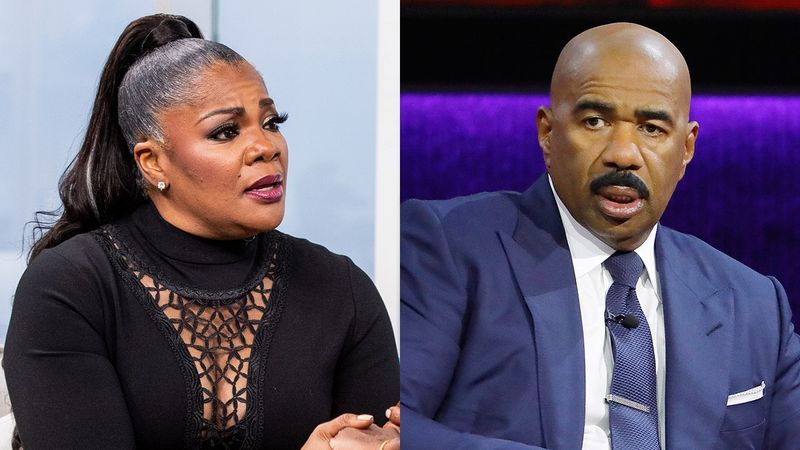The glitzy world of talk shows isn’t all laughter and light—behind the scenes, legendary battles have brewed. From professional betrayals to personal clashes, these infamous feuds reveal the drama that unfolds when egos collide. Here, we explore 13 talk show hosts who were embroiled in epic behind-the-scenes disputes, each with its own unique tale of rivalry and contention. Get ready for a journey through the most memorable conflicts in television history.
1. Joan Rivers vs. Johnny Carson
Joan Rivers was the queen of comedy, a trailblazer for female comedians. Her rapport with Johnny Carson on The Tonight Show was legendary. However, when Rivers secretly secured her own show, she was branded a traitor. Carson, feeling betrayed, severed ties and banned Rivers from NBC. This feud highlighted the cutthroat nature of the entertainment industry, where loyalty was overshadowed by ambition. Their friendship, once a cornerstone of late-night TV, ended abruptly, leaving Rivers to navigate uncharted waters in her career. It was a defining moment that forever changed both their legacies.
2. David Letterman vs. Jay Leno
David Letterman, known for his sharp wit, was the expected successor to Johnny Carson. But when NBC handed The Tonight Show to Jay Leno, a rivalry ignited. Letterman, feeling snubbed, launched his own show, where he often ridiculed Leno’s style. This late-night war captured the audience’s attention, as Letterman and Leno battled for ratings supremacy. Their professional feud, fueled by ambition and resentment, defined an era in late-night TV. The conflict was as much about personal pride as it was about entertainment, marking a pivotal moment in television history.
3. Ellen DeGeneres vs. Almost Everyone
Ellen DeGeneres, adored for her kindness, faced a storm when allegations of a toxic work environment surfaced. Behind the scenes, staffers described a culture of fear, contradicting her on-screen persona. Celebrities like Dakota Johnson added fuel by publicly calling out Ellen, challenging her authenticity. This scandal forced a reckoning in the entertainment industry about the gap between public image and private behavior. Ellen’s fall from grace was swift and dramatic, highlighting the power dynamics in Hollywood and sparking conversations about accountability and respect in the workplace.
4. Wendy Williams vs. Howard Stern
Wendy Williams, the outspoken radio and TV host, didn’t shy away from criticizing Howard Stern. She labeled him outdated, sparking a vicious back-and-forth. Stern, never one to back down, mocked Williams’ appearance and show. Their feud was a clash of egos, each trying to outdo the other in a battle of insults. While their rivalry was intense, it also highlighted the competitive nature of radio, where sharp tongues and quick wit reign supreme. This ongoing conflict kept audiences engaged, eager to see who would land the next blow.
5. Oprah Winfrey vs. Geraldo Rivera
Oprah Winfrey, the queen of talk shows, faced criticism from Geraldo Rivera, who dismissed her emotional style. Rivera’s remarks about Oprah’s audience sparked a long-lasting tension. Oprah, unfazed by the critique, continued to dominate the talk show landscape. This feud was more than personal; it was a clash of differing philosophies in television. Oprah’s success and ability to connect with her audience contrasted sharply with Rivera’s more confrontational approach, marking a distinct divergence in talk show strategies and audience engagement.
6. Jimmy Kimmel vs. Matt Damon
Jimmy Kimmel’s long-running joke about apologizing to Matt Damon for running out of time became a beloved gag. However, the humor took a turn when Damon, known for his sharp wit, began to play along, escalating the joke into a pseudo-feud. This playful banter, reminiscent of old Hollywood rivalries, kept audiences entertained, blurring the lines between reality and comedy. Damon’s cheeky responses added a layer of amusement, turning a simple joke into a memorable part of pop culture, showcasing the power of humor in entertainment.
7. Rosie O’Donnell vs. Barbara Walters
Rosie O’Donnell’s tenure on The View was marked by fiery debates with Barbara Walters. Their clashes, often political, were not just about content but control. Walters, a seasoned journalist, found herself at odds with O’Donnell’s brash style. This feud was emblematic of the challenges in balancing diverse perspectives on a single platform. The tensions spilled off-camera, affecting their professional relationship. Walters later described working with Rosie as challenging, underscoring the complexities of managing strong personalities in media, where differing viewpoints often lead to conflict.
8. Conan O’Brien vs. NBC
Conan O’Brien’s brief stint on The Tonight Show ended in controversy. NBC’s decision to revert Jay Leno back to the slot led O’Brien to publicly criticize the network. This conflict, marked by O’Brien’s witty yet biting commentary, highlighted the uncertainties in television programming. Conan’s departure, accompanied by a hefty payout, became a symbol of corporate mishandling. The feud resonated with fans, who admired O’Brien’s candor and humor in the face of adversity, showcasing his resilience and solidifying his status as a beloved figure in comedy.
9. Maury Povich vs. Jerry Springer
Maury Povich, known for his paternity test drama, often found himself compared to Jerry Springer’s chaotic show. Povich, aiming for dignity, criticized Springer’s sensational approach. This rivalry was less about personal animosity and more about differing visions for tabloid TV. Povich sought respectability, while Springer embraced the absurd. Their contrasting styles highlighted the diverse landscape of daytime television, where viewers gravitated to both the earnest and the outrageous. This feud, though not overtly hostile, underscored the varied tastes of audiences seeking entertainment.
10. Arsenio Hall vs. Chevy Chase
Arsenio Hall’s success in late-night television was marred by a brief feud with Chevy Chase. When Chase’s talk show flopped, Hall seized the opportunity to poke fun at him. This led to a backstage confrontation, where Chase confronted Hall, creating a buzz in entertainment circles. The feud was short-lived but highlighted the competitive nature of late-night TV. Hall’s witty jabs and Chase’s reaction became a talking point, illustrating how fleeting moments in TV history can leave a lasting impact on careers and public perception.
11. Larry King vs. Ryan Seacrest
Larry King, a broadcasting icon, was not thrilled about Ryan Seacrest possibly replacing him. King’s comments about Seacrest’s perceived lack of gravitas added tension to their professional relationship. This feud symbolized the generational shift in television, where seasoned journalists felt threatened by emerging pop culture figures. Seacrest, known for his charm and versatility, represented a new wave in broadcasting, while King stood for traditional journalism. Their interactions reflected broader industry changes, as media adapted to evolving audience expectations and technological advancements.
12. James Corden vs. Multiple Restaurants
James Corden, known for his affable television persona, faced backlash for alleged rude behavior at restaurants. Restaurateur Keith McNally’s decision to ban Corden from his establishments ignited public interest. McNally’s subsequent forgiveness added a twist to the saga, reflecting the complexities of celebrity culture. This feud, though seemingly trivial, underscored how off-screen behavior can impact public perceptions. Corden’s charm was contrasted with his alleged conduct, sparking discussions on fame and accountability. The incident highlighted the scrutiny that public figures face in their personal lives.
13. Steve Harvey vs. Mo’Nique
Steve Harvey, a powerhouse in entertainment, clashed with comedian Mo’Nique over issues of fairness in Hollywood. Mo’Nique accused Harvey of not supporting her stance for equal pay, while Harvey argued she burned bridges. This feud resonated with broader industry conversations about race, gender, and equity. Harvey’s pragmatic approach clashed with Mo’Nique’s outspoken advocacy, illustrating differing strategies in navigating Hollywood. Their public dispute sparked dialogue about the challenges faced by black entertainers, emphasizing the need for solidarity and understanding in the pursuit of justice.
